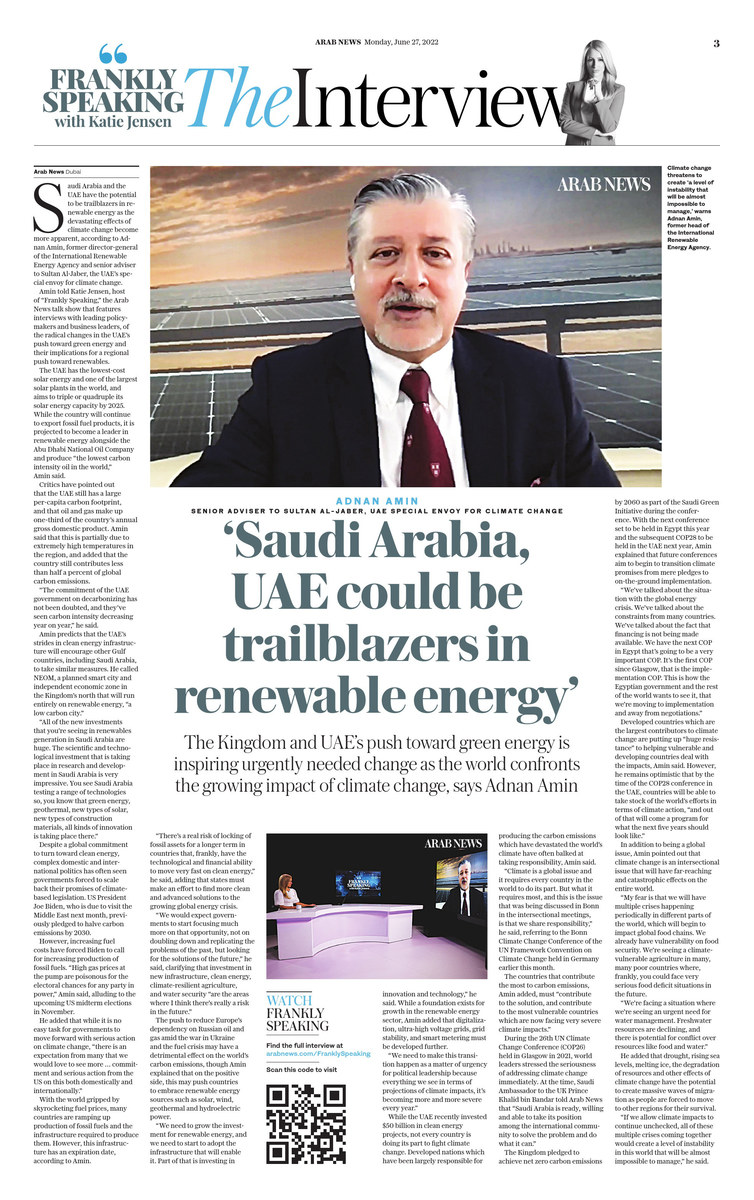DUBAI: Saudi Arabia and the UAE have the potential to be trailblazers in renewable energy as the devastating effects of climate change become more apparent, according to Adnan Amin, the former director-general of the International Renewable Energy Agency and senior adviser to Sultan Al-Jaber, the UAE’s special envoy for climate change.
Amin told Katie Jensen, host of “Frankly Speaking,” the Arab News talk show that features interviews with leading policymakers and business leaders, of the radical changes in the UAE’s push toward green energy and their implications for a regional push toward renewables.
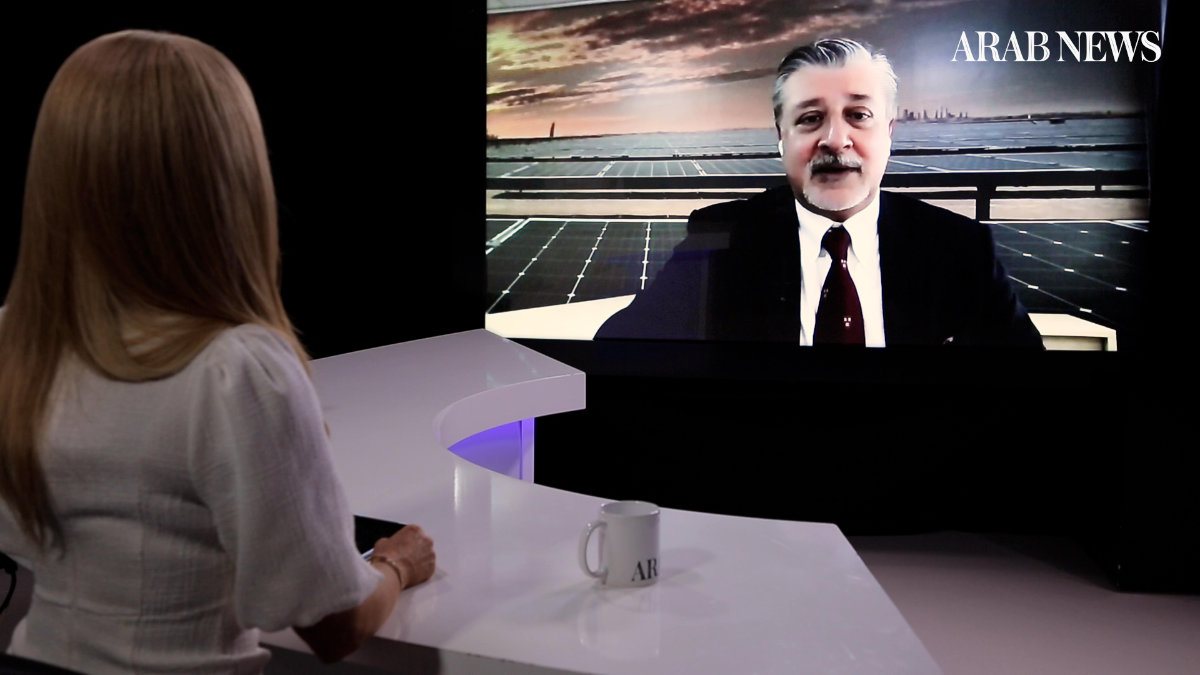
The UAE has the lowest-cost solar energy and one of the largest solar plants in the world, and aims to triple or quadruple its solar energy capacity by 2025. While the country will continue to export fossil fuel products, it is projected to become a leader in renewable energy alongside the Abu Dhabi National Oil Company and produce “the lowest carbon intensity oil in the world,” Amin said.
Critics have pointed out that the UAE still has a large per-capita carbon footprint, and that oil and gas make up one-third of the country’s annual gross domestic product. Amin said that this is partially due to extremely high temperatures in the region, and added that the country still contributes less than half a percent of global carbon emissions.
“The commitment of the UAE government on decarbonizing has not been doubted, and they’ve seen carbon intensity decreasing year on year,” he said.

Katie Jensen
Amin predicts that the UAE’s strides in clean energy infrastructure will encourage other Gulf countries, including Saudi Arabia, to take similar measures. He called NEOM, a planned smart city and independent economic zone in the Kingdom’s north that will run entirely on renewable energy, “a low carbon city.”
“All of the new investments that you’re seeing in renewables generation in Saudi Arabia are huge. The scientific and technological investment that is taking place in research and development in Saudi Arabia is very impressive. You see Saudi Arabia testing a range of technologies so, you know that green energy, geothermal, new types of solar, new types of construction materials, all kinds of innovation is taking place there.”
Despite a global commitment to turn toward clean energy, complex domestic and international politics has often seen governments forced to scale back their promises of climate-based legislation. US President Joe Biden, who is due to visit the Middle East next month, previously pledged to halve carbon emissions by 2030.
However, increasing fuel costs have forced Biden to call for increasing production of fossil fuels. “High gas prices at the pump are poisonous for the electoral chances for any party in power,” Amin said, alluding to the upcoming US midterm elections in November.
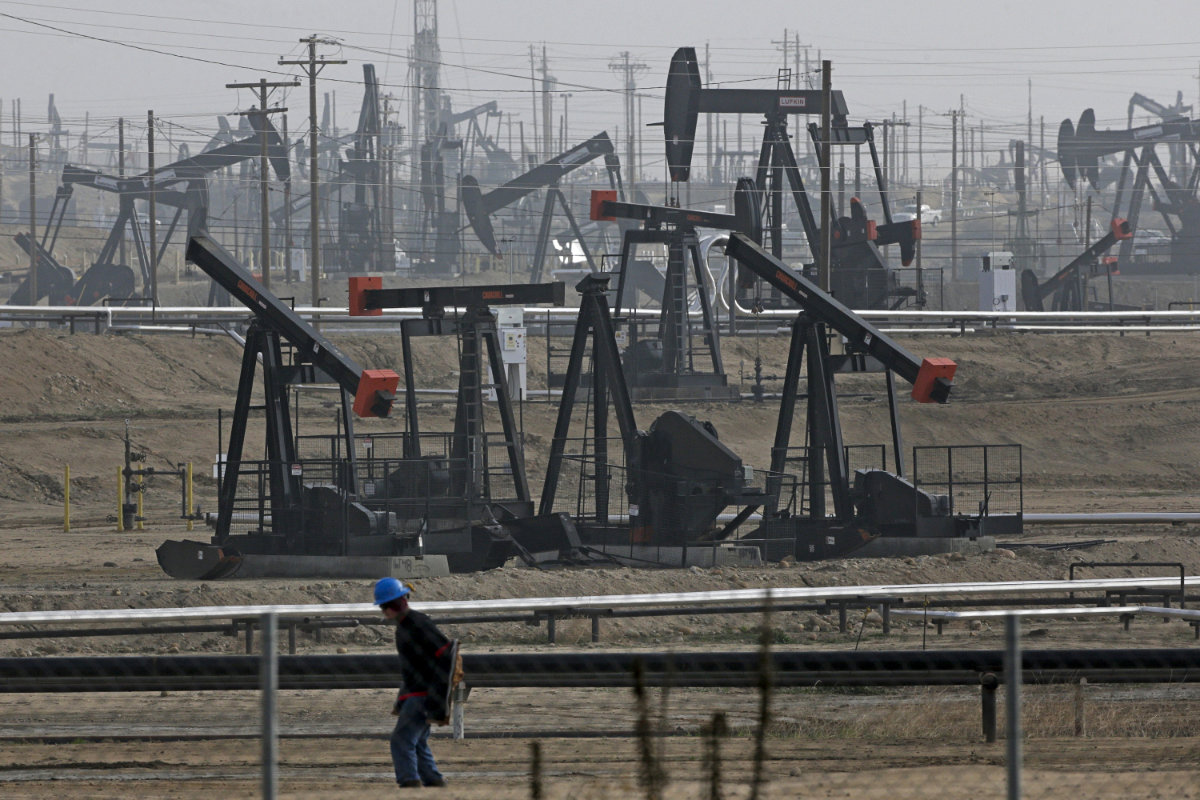
Increasing fuel costs have forced the US to increase production of fossil fuels. (AP File Photo)
He added that while it is no easy task for governments to move forward with serious action on climate change, “there is an expectation from many that we would love to see more … commitment and serious action from the US on this both domestically and internationally.”
With the world gripped by skyrocketing fuel prices, many countries are ramping up production of fossil fuels and the infrastructure required to produce them. However, this infrastructure has an expiration date, according to Amin.
“There’s a real risk of locking of fossil assets for a longer term in countries that, frankly, have the technological and financial ability to move very fast on clean energy,” he said, adding that states must make an effort to find more clean and advanced solutions to the growing global energy crisis.
“We would expect governments to start focusing much more on that opportunity, not on doubling down and replicating the problems of the past, but looking for the solutions of the future,” he said, clarifying that investment in new infrastructure, clean energy, climate-resilient agriculture, and water security “are the areas where I think there’s really a risk in the future.”
The push to reduce Europe’s dependency on Russian oil and gas amid the war in Ukraine and the fuel crisis may have a detrimental effect on the world’s carbon emissions, though Amin explained that on the positive side, this may push countries to embrace renewable energy sources such as solar, wind, geothermal and hydroelectric power.
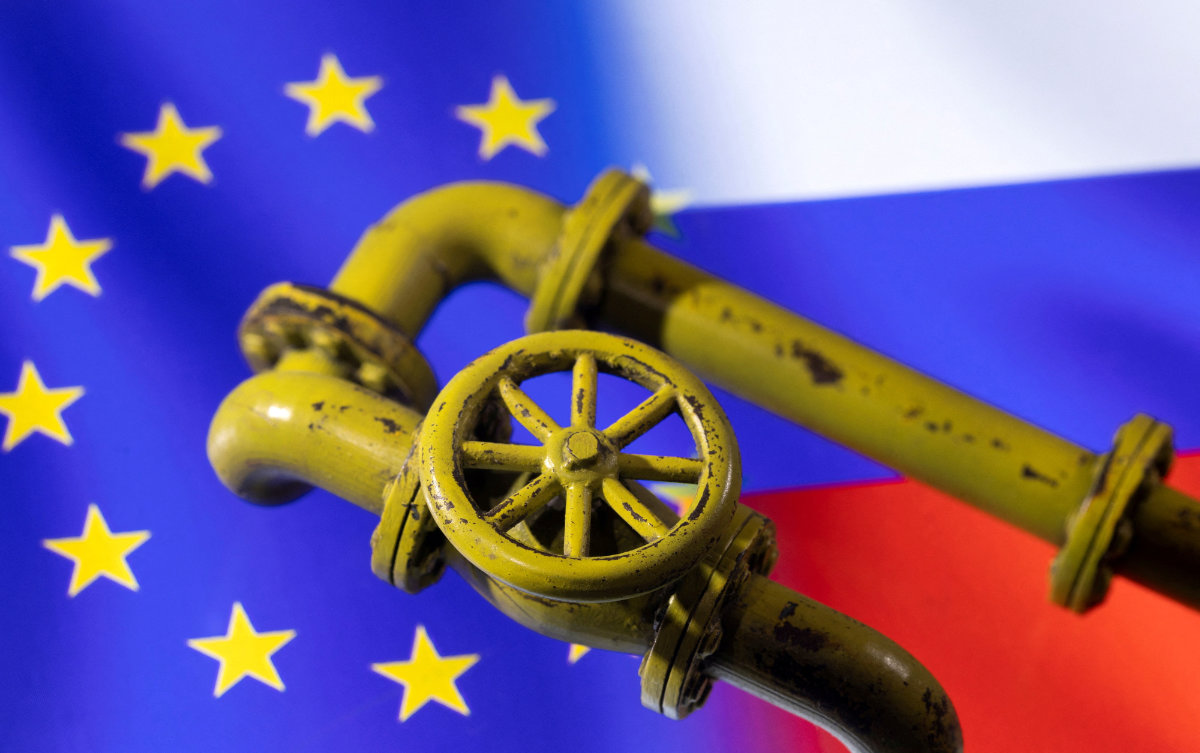
Europe's effort to cut its dependence on Russian oil and gas could push countries to embrace renewable energy sources, says Adnan Amin. (Reuters illustration photo)
“We need to grow the investment for renewable energy, and we need to start to adopt the infrastructure that will enable it. Part of that is investing in innovation and technology,” he said. While a foundation exists for growth in the renewable energy sector, Amin added that digitalization, ultra-high voltage grids, grid stability, and smart metering must be developed further.
“We need to make this transition happen as a matter of urgency for political leadership because everything we see in terms of projections of climate impacts, it’s becoming more and more severe every year.”
While the UAE recently invested $50 billion in clean energy projects, not every country is doing its part to fight climate change. Developed nations which have been largely responsible for producing the carbon emissions which have devastated the world’s climate have often balked at taking responsibility, Amin said.
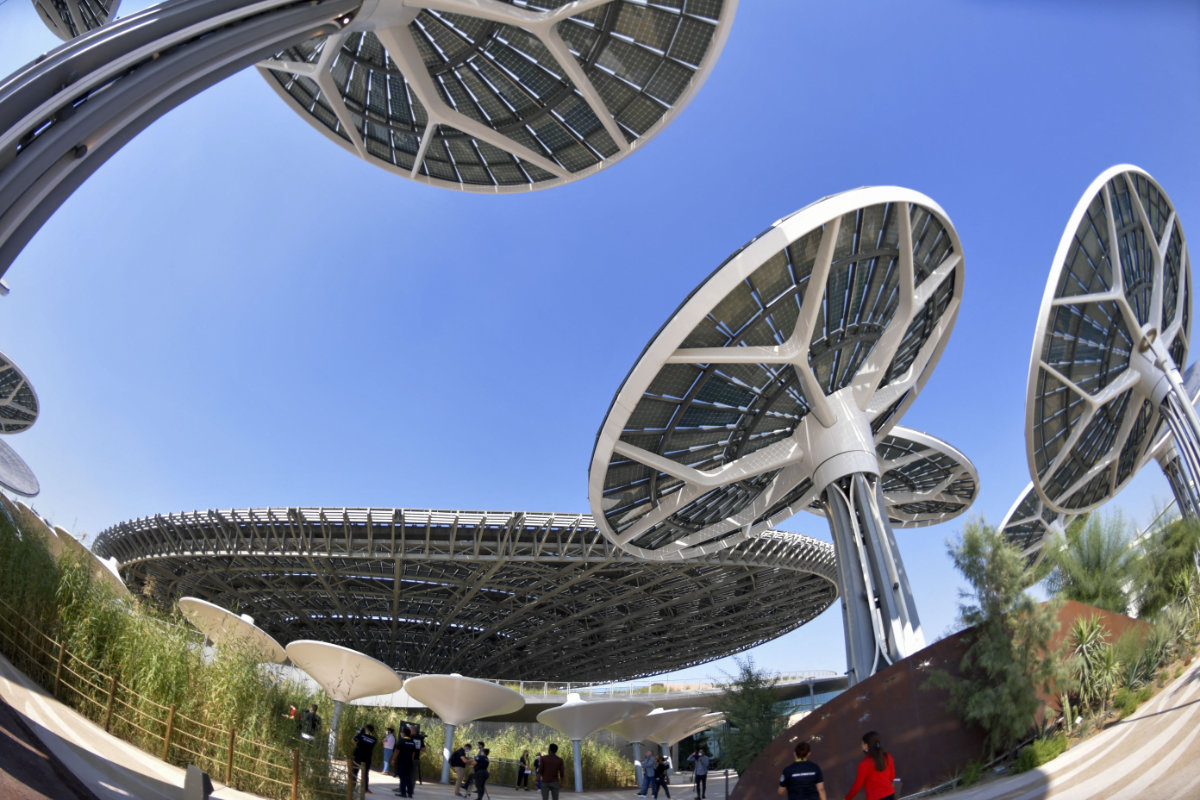
While the UAE recently invested $50 billion in clean energy projects, not every country is doing its part to fight climate change. (AFP file photo)
“Climate is a global issue and it requires every country in the world to do its part. But what it requires most, and this is the issue that was being discussed in Bonn in the intersectional meetings, is that we share responsibility,” he said, referring to the Bonn Climate Change Conference of the UN Framework Convention on Climate Change held in Germany earlier this month.
The countries that contribute the most to carbon emissions, Amin added, must “contribute to the solution, and contribute to the most vulnerable countries which are now facing very severe climate impacts.”
During the 26th UN Climate Change Conference (COP26) held in Glasgow in 2021, world leaders stressed the seriousness of addressing climate change immediately. At the time, Saudi Ambassador to the UK Prince Khalid bin Bandar told Arab News that “Saudi Arabia is ready, willing and able to take its position among the international community to solve the problem and do what it can.”
The Kingdom pledged to achieve net zero carbon emissions by 2060 as part of the Saudi Green Initiative during the conference. With the next conference set to be held in Egypt this year and the subsequent COP28 to be held in the UAE next year, Amin explained that future conferences aim to begin to transition climate promises from mere pledges to on-the-ground implementation.
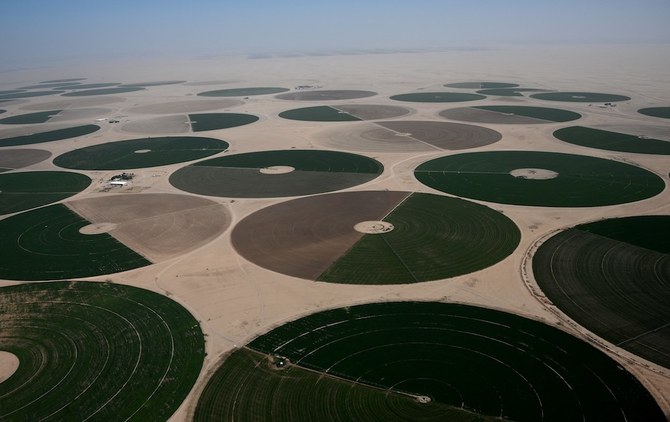
An aerial picture taken on Jan. 13, 2020 shows circular fields, part of the green oasis of Wadi Al-Dawasir, Saudi Arabia. (AFP file photo)
“We’ve talked about the situation with the global energy crisis. We’ve talked about the constraints from many countries. We’ve talked about the fact that financing is not being made available. We have the next COP in Egypt that’s going to be a very important COP. It’s the first COP since Glasgow, that is the implementation COP. This is how the Egyptian government and the rest of the world wants to see it, that we’re moving to implementation and away from negotiations.”
Developed countries which are the largest contributors to climate change are putting up “huge resistance” to helping vulnerable and developing countries deal with the impacts, Amin said. However, he remains optimistic that by the time of the COP28 conference in the UAE, countries will be able to take stock of the world’s efforts in terms of climate action, “and out of that will come a program for what the next five years should look like.”
In addition to being a global issue, Amin pointed out that climate change is an intersectional issue that will have far-reaching and catastrophic effects on the entire world.
“My fear is that we will have multiple crises happening periodically in different parts of the world, which will begin to impact global food chains. We already have vulnerability on food security. We’re seeing a climate-vulnerable agriculture in many, many poor countries where, frankly, you could face very serious food deficit situations in the future.
“We’re facing a situation where we’re seeing an urgent need for water management. Freshwater resources are declining, and there is potential for conflict over resources like food and water.”
He added that drought, rising sea levels, melting ice, the degradation of resources and other effects of climate change have the potential to create massive waves of migration as people are forced to move to other regions for their survival.
“If we allow climate impacts to continue unchecked, all of these multiple crises coming together would create a level of instability in this world that will be almost impossible to manage,” he said.
